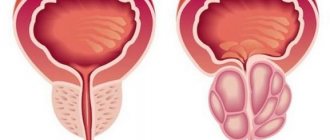Description of the phenomenon
The effect of muscle fiber stiffness has more than one factor that causes this phenomenon. The causes of a hard belly in men can be caused by systemic disorders of the internal organs. A feeling of fullness appears after overeating, drinking too much sweets, or carbonated drinks. No action is required, just moving around is enough for the condition to improve.
Dysbacteriosis
The intestinal microflora is populated by many bacteria necessary for the normal functionality of the gastrointestinal tract. Due to the use of antibiotics, poor nutrition, and stress, bacterial balance is disrupted. Food that enters the stomach is not digested, rots and causes fermentation. The result is a hard, bloated belly.
Intestinal blockage
https://www.youtube.com/watch?v=sIIJpb_SBtA{amp}amp;modestbranding=0{amp}amp;controls=1{amp}amp;rel=0{amp}amp;showinfo=1{amp} amp;enablejsapi=1{amp}amp;origin=
The first symptom is pain in the abdomen. There may be a feeling of hardening in some part of the intestines, stool retention occurs, and gases do not pass away. Painful sensations of varying intensity and character increase and are localized. The result is a hard, elastic stomach, the causes of blockage are different: from poor nutrition to pathological changes in the functioning of internal organs.
If constipation does not go away for a long time, home remedies (enemas) and medications do not help, you should consult a doctor. It will require examination and identification of the provoking factor, then prescribed treatment.
Peritonitis
This disease is caused by inflammation of the peritoneum, which is what causes a tight stomach in men. The membrane lining the insides becomes inflamed with advanced appendicitis, inflammatory processes in the intestines and other pathologies. The contents of the internal organs enter the peritoneum, which leads to peritonitis.
The rapid absorption of substances into the mucosal tissue causes the immediate spread of infection through the blood; the lack of immediate help threatens sepsis. Signs of peritonitis:
- the stomach is very hard, dense, the skin is stretched tightly;
- vomiting appears, but unlike poisoning, vomiting does not bring relief, but aggravates the patient’s condition;
- body temperature rises;
- there is a constant feeling of thirst;
- weakness sets in;
- heart rate increases;
- I sweat more than usual.
Gas formation in the intestines, which often causes bloating, is scientifically called flatulence. Why is this happening? Air and other gases are always present in the stomach and intestines in some quantity. Some air is swallowed along with food (this process is called aerophagy).
Excess air from the stomach usually comes back out during belching, however, some of it reaches the intestines. But for the most part, the source of origin of gases in the gastrointestinal tract is different. They are formed as a result of food processing and are produced by intestinal microflora. They are partially absorbed by the intestinal walls, but a significant part of them comes out of the anus.
This is a completely normal process. A healthy person produces approximately 600 ml of gas per day. This process occurs up to 13-20 times a day. However, in case of flatulence, the volume of gas leaving the intestines increases greatly and can reach 3-4 liters. Naturally, all the gas cannot immediately leave the intestines, and as a result, a person’s stomach becomes distended.
Many people believe that the gas contained in the intestines is hydrogen sulfide. But in fact, there is very little hydrogen sulfide in intestinal gas; the main part of it consists of nitrogen, carbon dioxide, methane, oxygen and hydrogen. There are also odorous compounds present, such as methyl mercaptan, which mainly (along with hydrogen sulfide, ammonia and skatole) gives intestinal gas an unpleasant odor.
Most of the gases in the large intestine are concentrated along the walls, and are enclosed in bubbles that form foam.
Long-term use of medications is not recommended.
Causes of a pathological nature
If a hard belly appears in the lower abdomen after consuming gas-forming foods or drinks, the unpleasant symptoms disappear after a few hours on their own.
Things are much more serious when the cause is pathological.
If a hard lower abdomen is diagnosed, the reasons may include the following:
- lack of enzymes. Enzyme or lactose deficiency is very common not only among children, but also among adults. The cause of a hard belly is lactase deficiency. This enzyme is responsible for the breakdown of dairy products. If there is a shortage of this component, milk enters the large intestine and is already digested there thanks to the local flora;
- intestinal dysbiosis. This type of disease is accompanied by a violation of the microflora in the digestive tract. That is, the number of beneficial bacteria sharply decreases, and harmful ones increase;
- the appearance of tumor-like formations: polyps, cysts, malignant formations;
- intestinal obstruction.
Many patients are interested in the question, why do women have a hard stomach? Girls more often than men suffer from discomfort in the stomach.
When a hard belly is detected, the reasons for women are as follows:
- psychological stress, regular stressful situations;
- varicose veins in the pelvic area;
- early pregnancy;
- premenstrual syndrome;
- the beginning of labor.
It is more difficult for women to cope with the problem. To eliminate unpleasant symptoms, it is not enough to take medication alone. You need to follow a diet and avoid various stressful situations.
Symptoms
Flatulence is not only an increased release of gases from the intestines. This syndrome is also accompanied by symptoms such as bloating, pain, heaviness in the abdomen, and intestinal colic. In most cases, however, abdominal pain goes away after gas leaves the anus. This condition may also be accompanied by constipation or diarrhea, nausea, loss of appetite, unpleasant taste, bitterness in the mouth and even vomiting.
A swollen abdomen can put pressure on the diaphragm, which, in turn, can cause negative symptoms associated with the respiratory system or heart - shortness of breath, increased blood pressure, tachycardia. Also, flatulence and bloating often lead to insomnia, irritability, depression and other neurological symptoms.
In most cases, the release of gas and bloating in itself does not pose a direct threat to life. However, a person’s quality of life with this syndrome can sharply deteriorate. That is why this condition requires diagnosis and treatment.
Flatulence and a bloated abdomen in combination with diarrhea can be the result of diseases and pathological conditions such as enterocolitis, IBS, helminthic infestations, dysbiosis, colon infections, cirrhosis.
Abdominal bloating and pain may indicate chronic enterocolitis, Crohn's disease, peritonitis, intestinal obstruction, biliary dyskinesia, acute pancreatitis, cholecystitis, cholelithiasis.
Flatulence and bloating with simultaneous constipation can be symptoms of chronic gastritis, colitis, intestinal obstruction, liver failure, pancreatitis, cholelithiasis.
With enteritis, a bloated abdomen and pain in the navel area that appears after eating are often observed. Also with enteritis, diarrhea, deterioration of the skin and hair, and weight loss are observed.
Colitis is often accompanied not only by flatulence, but also by diarrhea and abdominal pain.
Biliary dyskinesia is usually accompanied, along with flatulence, impaired intestinal motility, atonic constipation, and intoxication of the body. Cholecystitis and hepatitis lead to a lack of bile production, which, in turn, leads to flatulence, pain in the right hypochondrium and diarrhea.
It should be remembered that bloating, accompanied by sharp pain, and often such phenomena as bleeding from the anus, tension in the abdominal wall, retention of stool and gases, a drop in pressure, and an increase in temperature, is called an “acute abdomen.” With this syndrome, you should not guess what disease caused it, but you should immediately call a doctor.
Even after eliminating gas-forming foods and following proper nutrition, bloating may not go away. In this case, you should think about a chronic physiological disorder that the man has not yet noticed.
Inflammatory processes in the gastrointestinal tract are the main causes of discomfort in the lower body. Gastroenteritis, cholecystitis, duodenitis, irritable bowel syndrome, celiac disease (negative reaction to protein gluten) and chronic dysbiosis disrupt the natural digestion process. The appearance of dysbacteriosis kills the positive microflora and also leads to the fact that a person is constantly swelling.
Long-term use of antibiotics leads to the rapid development of pathogenic microflora. The stronger half of humanity more often holds leadership positions and traditionally bears more responsibility (for wealth in the home, the well-being of children), which contributes to the development of nervous diseases - neuroses and neuritis, which stimulate food to enter the large intestine too quickly. When insufficiently digested, food quickly ends up at the bottom (in the lower intestines) and the person feels bloated.
The tendency to drink alcohol also increases the likelihood of bloating: any alcoholic drink stimulates the formation of harmful substances. The presence of surgical interventions in the gastrointestinal tract can also permanently change the postoperative state of the patient, for example, cause chronic flatulence.
Both climbers and those who like to visit mountains who are far from civilization can experience discomfort: rising to a height leads to the expansion of gases, increasing pressure on the intestines (the phenomenon is called high-altitude flatulence).
Determining the causes of abdominal hardness
Many patients at doctor's appointments ask the question, why is the stomach hard?
The first symptoms of a bloated belly often appear as a feeling of relief after removing the belt. Against this background, a person tries to wear clothes that do not cause significant discomfort. The appearance of disturbances is indicated by sensations of tension in the groin and lower back. When palpating a dense abdomen, pain occurs.
Painful sensations arise as a result of the body’s reaction to a pathological process that occurs in any internal organ. These include an enlarged spleen, a congested liver, and a tumor in the colon.
Local pain occurs due to cirrhosis. But severe cases are also possible, when an unpleasant symptom indicates peritonitis, acute pancreatitis or primary liver cancer.
Why does the lower abdomen become swollen, hard and painful? These signs may indicate progressive ascites or active growth of tumor formations. Then the patient will complain of indigestion and heartburn.
During pregnancy, women often face the problem of increased intra-abdominal pressure. This occurs due to the active growth of the fetus and uterine cavity. They compress internal organs. The diaphragm also rises, making breathing difficult when lying down or sitting.
A tight belly during pregnancy indicates the tone of the uterus. This condition is considered dangerous, because the risk of miscarriage and premature birth increases. In the last stages of pregnancy, the abdomen becomes elastic and hard at the onset of labor. In such cases, urgent hospitalization is required.
Diffuse swelling may be a reason for a thorough examination. The first thing the doctor is interested in is the tendency to drink alcohol. It is also necessary to identify whether there was a history of hematuria, jaundice, digestive disorders, rheumatic or cardiac pathologies. By obtaining the data, the possibility of making a correct diagnosis increases. Then it is possible to diagnose cirrhosis, cancer of the digestive organs, kidney pathology in the form of nephrosis, and congestive heart failure.
Why does flatulence occur and the stomach swell?
There can be many reasons why flatulence and bloating occur. In any case, bloating is a symptom indicating that something is wrong with the human digestive system. However, it is impossible to determine a specific disease based on this symptom alone. After all, increased gas formation is observed in 90% of gastrointestinal diseases.
Also, increased gas formation and bloating can be a consequence of a person’s unhealthy lifestyle and diet. First of all, it is worth mentioning the main causes of increased aerophagia:
- talking while eating
- smoking,
- use of low-quality dentures,
- chewing gum,
- food on the go.
Also, a significant amount of gases can enter the stomach as a result of drinking carbonated water, kvass, beer, which can also lead to bloating of the abdominal cavity.
Sometimes increased gas formation and bloating may be transient. For example, if a person sleeps at night in one position, then gases can accumulate in one of the intestinal sections, and the next morning there will be symptoms of flatulence. However, morning flatulence is a transient phenomenon.
The main causes of flatulence include poor nutrition and an irrational diet. Some types of food can cause increased fermentation in the intestines and stomach, which causes increased gas formation and bloating. Everyone knows that plants of the legume family, especially peas, have a similar property.
It is worth mentioning separately about another cause of flatulence - lactose or milk sugar intolerance syndrome. This is the name of a disease in which a person’s gastrointestinal tract does not produce the lactase enzyme, which breaks down milk sugar - lactose. Excess milk sugar in the gastrointestinal tract can also lead to a phenomenon such as bloating.
In addition, other sugars - fructose, sucrose, raffinose (sugar found in legumes) and starches, as well as sorbitol (sugar alcohol) - are poorly digested in the gastrointestinal tract. And if some of the sugar remains in the intestines, then it becomes a favorable environment for the proliferation of bacteria that produce gases. Thus, sweet foods can also cause flatulence.
Another syndrome that can cause increased gas formation and bloating is celiac disease. This is the name of a condition in which a person’s gastrointestinal tract is unable to digest gluten, a protein found in many cereals.
In addition, eating heavy, overly spicy and fatty foods does not contribute to digestion.
Other diseases that may cause increased gas formation and bloating:
- enteritis,
- gastritis,
- colitis,
- hepatitis,
- cirrhosis,
- cholecystitis,
- thrombosis of the intestinal walls,
- helminthic infestations,
- biliary dyskinesia,
- pancreatitis,
- adhesions in the intestines,
- intestinal obstruction,
- Crohn's disease,
- tumors
- intestinal stenosis.
As you can see, there are quite a few reasons that can cause bloating. If increased gas formation is caused by any functional intestinal disease, then, as a rule, it does not go away even if the diet is adjusted.
Irritable bowel syndrome is another possible cause of bloating and flatulence. This is a very common disease, affecting 20% of people, most of whom are women. Its occurrence is influenced by increased levels of stress, depression and neuroses.
Dysbacteriosis
Dysbacteriosis is also among the possible causes of flatulence. Dysbiosis is not considered to be a separate disease; rather, it is a syndrome that occurs as a result of other gastrointestinal diseases or as a result of the use of antibiotics. It is expressed in a decrease in the number of lacto- and bifidobacteria in the large intestine and an increase in the amount of gas-producing pathogenic microflora.
Causes of abdominal enlargement not related to diseases
It is easy to grow a sign of solidity and life experience at a fairly young age. Today, a man does not have to run hundreds of kilometers in search of food, drag home a dead mammoth, or fight enemies for women and his territory.
The functions of the male body, designed to perform serious physical activity, do not find their application in the life of a modern representative of the stronger sex. The result of an insufficiently active lifestyle combined with improper or excessively rich nutrition is the growth of the abdomen.
Poor nutrition
Overeating, snacking at work, and fatty street food to quickly satisfy hunger give the body so much energy that it does not have time to fully use it. As a result, excess calories are stored as fat.
Fat accumulations are first deposited in the greater omentum, located in the lower abdomen, then cover all internal organs and penetrate the skin, causing an increase in the volume of the abdomen and waist.
The quality and diet also plays an important role in the occurrence of the problem of excess weight. Fast food stuffed with trans fats, products with chemical “garbage”, flour products and sugary drinks rich in carbohydrates provide the body with excess fat deposits.
Eating on the go is not perceived by the brain as something serious, the result is a lack of feeling of fullness and the need for additional calories.
Abuse of beer and alcoholic beverages
The object of pride of some men – the “beer” belly – deserves special attention. Belly enlargement from beer and alcoholic beverages is mainly due to fatty snacks consumed along with them.
Sausages, sausages, dried or dried fish, snacks contain a lot of calories, retain water in the body, which leads to the appearance of a fatty layer.
Men with a hereditary predisposition to obesity have a particular tendency to become the owners of a large belly. Scientists have confirmed the presence of an obesity gene in the human genome, so the same diet can be reflected differently on gourmet figures and men’s health.
Insufficient physical activity
The powerful muscles of the abdominals and back reliably protect the gastrointestinal tract of men from external influences and prevent the intestines from stretching. But if a man eats a lot and moves little, the muscles lose their tone, become thinner and weaker.
The walls of the intestines and stomach stretch when regularly consuming large amounts of food, but the abdominal muscles are no longer able to support them. Losing its protective corset, the stomach begins to increase in size, giving the body an unattractive shape.
After 50 years, lack of physical activity disrupts the functioning of all major life support systems. Many years of “sedentary” work, table games of cards or dominoes, instead of a morning jog, and elementary laziness “reward” a man with physical inactivity, which in turn leads to disruption of the cardiovascular system, atherosclerosis and obesity.
The supply of oxygen to the blood becomes insufficient, the breakdown of fats occurs slowly and incompletely, which is why older people often suffer from obesity. Heart attacks, shortness of breath and snoring are also a consequence of an increase in the amount of fat in the abdominal region, which begins to put pressure on the diaphragm and changes the position of the heart.
Age-related slowdown of metabolism
Physiological changes that occur in a man’s body after 40 years of age slow down the overall metabolism and change hormonal levels. Rapid weight gain is facilitated by gradually decreasing levels of testosterone, which controls and burns fat deposits.
Being overweight only makes the problem worse. Adipose tissue in men can change the ratio of male and female hormones in the body, reducing the amount of testosterone and causing female-type obesity (enlarged mammary glands, fat on the hips and sides).
Bad habits and stress
Bad habits such as smoking, excessive consumption of beer and alcoholic beverages also lead to changes in hormonal levels. Nicotine, tobacco tar and alcohol, when entering the body, lead to a decrease in the level of the male hormone - testosterone and, accordingly, to the problem of excess weight and a large belly.
The liver of those who drink strong drinks is constantly busy processing alcohol, so this organ simply does not have time to break down fats obtained from food.
Stress
Mental overload, gambling, hours-long computer “shooting games” that replace proper sleep are often accompanied by strong emotions that put the body in a state of stress.
The body’s active production of the “stress” hormone – cortisol – helps to resist a stressful situation. It plays a dual role: it helps cope with stress and promotes the deposition of stress fat and weight gain.
Swallowing air and flatulence
Such processes as flatulence and aerophagia also bloat the stomach. With flatulence, bloating occurs due to the accumulation of digestive gases in the intestines as a result of consuming certain foods (legumes, sauerkraut, baked goods, carbonated drinks).
With aerophagia - due to the entry into the stomach of air swallowed during a rushed meal, accompanied by conversations.
Postural disorders
A protruding belly in a thin man may be a consequence of curvature of the spine in the thoracic (kyphosis) or lumbar (lordosis) regions. Improper distribution of the load stretches the muscles on the back and at the same time deforms the muscles of the anterior abdominal wall, allowing the stomach to protrude forward unhindered.
Features of this condition in men
Diarrhea, constipation, rumbling intestines, cramping pain are common symptoms that describe the clinical picture of this disease. Stitching pains occur in the left and right hypochondrium, where the anatomical kinks of the large intestine are located. Chronic disorders lead to deterioration of health: headaches appear, a feeling of nausea develops, and the temperature rises. Extraintestinal symptoms also include the appearance of pain in the heart area and disturbances in heart rhythm.
Prolonged flatulence leads to worsening mood, development of insomnia and general weakness.
Peritonitis
How to get rid of bloating?
To avoid gas and bloating, it is important to make some changes in your lifestyle.
- Avoid gas-causing foods such as legumes, cabbage, and cauliflower.
- Avoid dairy products if you are lactose and gluten intolerant.
- Products labeled sugar-free also often contain bloating ingredients.
- Engage in physical activity and stop smoking.
If you often suffer from gas, then you need a quicker solution to the problem. Fortunately, folk remedies will come to your aid that will help you quickly get rid of gas.
Find a quiet corner to say goodbye to this problem.
You can get rid of gas formation if you use the recommendations of specialists, medications and folk recipes.
General Tips
It is better to prevent an unpleasant sensation in the lower body than to treat an already formed undesirable reaction in the body.
Treatment
In most cases, eliminating such unpleasant phenomena can be done at home. Treatment methods should be selected so that they are aimed both at relieving the negative symptoms themselves, and directly at eliminating the disease that caused it.
Medicines
Various medications can be used to reduce gas formation. First of all, these are defoamers or carminatives, such as Espumisan. The principle of their action is based on the fact that they destroy the foam accumulated near the walls of the colon, as a result of which the gases contained in it come out.
Also useful will be drugs - enterosorbents that absorb the contents of the gastrointestinal tract. Although they usually do not absorb the gases themselves, they can absorb bacteria and carbohydrates, which cause fermentation and, as a result, increased gas production. At home, the following types of sorbents are most often used to treat flatulence and combat bloating:
- Activated carbon,
- Smecta,
- Polysorb,
- Enterosgel.
Also very effective in treating flatulence and bloating are drugs that increase the tone of the muscle walls of the stomach and intestines, for example, metoclopramide. These drugs speed up gastrointestinal emptying. They are often prescribed before endoscopic and x-ray examinations.
Often, increased gas formation can be caused by dysbiosis - a lack of lactobacilli in the large intestine and the dominance of pathogenic microflora provoked by this deficiency. In this case, probiotic preparations are suitable - Linex, Bifidumbacterin, Lactofiltrum.
In the event that flatulence is caused by insufficient production of bile and digestive enzymes necessary for the digestion of proteins, fats and carbohydrates, enzyme preparations are needed - Mezim, Pancreatin, Creon, containing these enzymes in the required quantity, as well as choleretic agents.
Antispasmodics - drotaverine (noshpa) and papaverine, are also often used for the syndrome of increased gas formation and bloating. They help relieve muscle spasms, which can cause gas to accumulate in various parts of the intestines. In addition, antispasmodics can relieve pain and intestinal colic.
Diagnostics
As already mentioned, there can be many reasons that cause flatulence, as well as leading to bloating. And independent attempts to treat the syndrome may not help. Only a gastroenterologist, after conducting a thorough diagnosis of the patient and analyzing the medical history, is able to identify the source of the problem - an irrational lifestyle and diet, or some serious gastrointestinal disease.
To diagnose the causes of increased gas formation, methods such as radiography, colonoscopy, computed tomography of the abdominal cavity, blood and stool tests can be used.
However, an attack of flatulence can occur suddenly, and a person may not be able to immediately run to the doctor. What remedies can quickly relieve unpleasant symptoms?
Quick-acting remedies that help primarily include the following:
- antispasmodics (Noshpa),
- defoamers (Espumizan),
- drugs that increase the tone of the walls of the gastrointestinal tract (metoclopromide),
- sorbents (activated carbon),
Diet plays an important role and helps prevent flatulence and bloating. In addition, diet is necessary in the treatment of gastrointestinal diseases that provoke these phenomena.
A diet for flatulence and bloating involves, first of all, avoiding foods that can cause increased gas formation. These are dairy products, primarily whole milk, rich bakery products, fruits and vegetables that cause strong fermentation - grapes, legumes, white cabbage, corn, sugar substitutes - xylitol and sorbitol.
Fatty meats, chocolate, sweets, ice cream, and alcohol are also excluded.
The gastrointestinal tract of each person has its own characteristics, and sometimes flatulence can be caused by a product that seems quite harmless at first glance. Therefore, the problem can be solved by simply eliminating this product from the diet. In terms of selecting a suitable diet, a food diary can help the patient, in which all the dishes he eats are recorded. Thus, you can find those products that provoke unwanted gas formation.
It is best to eat as often as possible – 5-6 times a day. However, the interval between different episodes of eating should be at least 3 hours. It is advisable not to change the time of eating so that the body gets used to producing enzymes at a certain time. Food should be warm, not too hot and not too cold.
It is recommended to include in the menu products that improve intestinal motility - vegetable salads, cereals, low-fat fermented milk products, dietary meats and fish. An optimal diet in the absence of chronic gastrointestinal diseases should lead to relief from flatulence and bloating.
Diet and medications alone will not help the patient if the unpleasant symptoms are caused by his incorrect lifestyle. Therefore, you should avoid stress, organize proper rest, exercise more physical activity, and engage in physical therapy.
Therapeutic measures for an elastic abdomen
A large and elastic belly is a reason to contact a specialist. With temporary swelling, unpleasant symptoms disappear after a few hours. If your stomach is constantly bloated and no measures help, then you should visit a doctor. Most often, such problems are dealt with by gastroenterologists.
Based on the complaint, accompanying symptoms and examination, the doctor prescribes an examination.
It is based on the following principles:
- submitting feces for analysis to identify intestinal microflora;
- examination of gastric juice;
- submitting stool for bacteriological analysis;
- bile examination;
- ultrasound diagnostics of the abdominal organs;
- fibrogastroduodenoscopy;
- colonoscopy or sigmoidoscopy;
- X-ray examination using a contrast agent.
Thanks to such techniques, an accurate diagnosis can be made.
After this, treatment is prescribed. It implies:
- following a strict diet. Gas-forming foods such as cabbage, potatoes, dairy products, and black bread are excluded from the menu. Every day you need to eat white stale bread, vegetable and fruit dishes, cereals, soups with low-fat meat broth, and fermented milk products;
- performing physical exercises. Every day you need to do exercises that are aimed at eliminating the symptoms of bloating. Doctors also recommend including a daily walk of three kilometers;
- prescription of medications. The patient is prescribed enzymes, probiotics, antispasmodics, choleretic agents, and adsorbents.
For more serious pathologies, surgical intervention is performed. For cancerous formations, chemotherapy and radio wave therapy are prescribed. To support immunity, vitamins and immunomodulatory drugs are prescribed.
zivot.ru
Folk remedies
- Parsley, dill, fennel. Natural herbs that suppress gas formation are recommended to be consumed with meals. “Dill water” is popular, which is prepared from crushed fennel or dill seeds (1 tsp). The mixture is poured with a glass of boiling water, the solution is infused for 40 minutes. Take a quarter glass up to 3 times a day when the stomach has been swollen for a long time.
- Yogurt and kefir. You don’t have to buy expensive Linex, but simply include daily consumption of dairy products in your diet. The effect occurs within a few days due to the reduction in the number of harmful bacteria. It is permissible to use only in the absence of diarrhea.
- Caraway. The crushed seeds of this plant can quickly calm the “storm” in the stomach. To prepare an aqueous solution, you need 3-4 teaspoons, which are poured with 2 cups of boiling water, after which it is infused for 2 hours.
- Sagebrush. A bitter but effective remedy, which is prepared by boiling 1 tbsp for 10 minutes. spoons of wormwood herb. Then the water infusion is left to cool for 1 hour. The heated decoction is consumed 1-2 tbsp. spoons after meals.
- Massage. Stroking the abdomen clockwise reduces pain. While on the floor, the man places his feet on a chair and strokes his stomach. This position promotes faster removal of increased amounts of gases.
1. Mustard
A teaspoon of mustard effectively copes not only with heartburn, but also with the problem of gas and bloating.
5. Fennel seeds
Chewing fennel seeds is another method of getting rid of gas and bloating that came to us from India.
Fennel not only freshens breath, but also helps digestion. Fennel seeds contain essential oils and other components that stimulate the production of bile and help undigested food move through the gastrointestinal tract, preventing the subsequent accumulation of gases.
- Brew 2 tablespoons of fennel seeds in 1 cup of hot water.
- Cover the cup and leave the seeds to soak for 5 minutes.
- Fennel tea provides immediate relief from bloating, but you can also drink it once a day to relieve symptoms.
- You can also take fennel seeds with you and chew them after meals.
6. Activated carbon
Activated carbon is perhaps one of the most effective and fastest remedies for gases, bloating and unpleasant odors. Due to its good porosity, activated carbon is able to absorb toxins and intestinal gases.
Flatulence in infants
Flatulence and a bloated belly are common in infants. Flatulence occurs in approximately 80% of children under one year of age. This is due to the fact that children’s intestines are growing rapidly, while the amount of enzymes produced is not yet at a level sufficient to digest food. This phenomenon can cause the child to experience pain.
To prevent bloating, the child must be periodically placed in an upright position to make it easier for gases to escape. Also, while breastfeeding, it is necessary to ensure that the child wraps his lips tightly around the nipple. The baby should be fed on demand, otherwise the baby will get hungry and suck too greedily, which will lead to a large amount of swallowed air and, ultimately, to bloating. To facilitate digestion, the child can be given enzyme preparations, herbal carminatives, for example, dill water.
Causes of abdominal enlargement
Not only adults can complain about a tight belly. This symptom often occurs both in babies under one year old and at an older age.
Temporary bloating is caused by swallowing air while eating food, abuse of carbonated drinks, fatty or gas-forming foods. Against the background of this process, constant belching occurs. Some of the air exits through the anus, and the rest is absorbed by the intestinal walls.
The stomach can swell when the digestive processes are activated. Some people experience a tight stomach the moment they take soda. The effect of this product is aimed at neutralizing gastric juice.
A hard stomach is diagnosed in children of preschool and school age after they have eaten a large amount of sweet or starchy foods. The thing is that they contain easily digestible carbohydrates, which lead to the processes of fermentation and decay.
A discomfort in the intestinal area occurs when consuming large amounts of fiber and starch. This includes dishes from legumes, potatoes, cabbage.
Diet: allowed and prohibited foods
Changing your eating habits is an important tool for overcoming bloating.
By consuming other foods that provoke the formation of gases during digestion, a person also runs the risk of getting a certain reaction in the body.
- legumes;
- honey;
- grape;
- kvass;
- beer;
- sweets;
- ice cream;
- white and cauliflower;
- turnip;
- sorrel;
- chocolate;
- sour fruits.
You should also exclude any products that cause an individual negative reaction in a man. Most often they are dairy products.
Drinking drinks containing sorbitol and aspartame also has a negative reaction on the body.
- crackers;
- porridge;
- steamed meat;
- lean fish;
- greenery;
- green and black tea;
- seaweed;
- fish and meat broths.
A person suffering from bloating can also eat vegetables without restrictions - potatoes, beets, carrots, pumpkin. Eggs are equally permissible to eat, but only boiled. When preparing dishes, it is recommended to use seasonings that improve food digestion (cumin, black pepper, ginger).
Adherents of healthy eating advise increasing the amount of proteins in the diet, which are traditionally easily absorbed by the body.
Woman's hard belly
Many women complain of heaviness in the abdominal cavity, as if this part of the body suddenly became large, hard and swollen. But often the cause of trouble is a banal violation of the principles of healthy eating and a passion for heavy fatty foods that are not absorbed by the body. Are you full of buns? Loaded up on yoghurts? In this case, a hard, puffy bottom most likely means there is a lack of enzymes to digest milk and flour products.
In this case, getting rid of a swollen and hard belly is very simple: remove buns and dairy products from your diet, introduce vegetables into your diet and take special enzymes after meals.
We are treated with an enema!
Along with pharmaceutical drugs, an enema is an excellent way to heal a hard stomach. Just fill the pear with water at room temperature: the intestines will quickly clear and you will feel better. And in order not to cause problems for yourself in the future, and not to ask why everything happened, eat all your food slowly, chewing every bite, and do not wash down your meal with large quantities of water.










